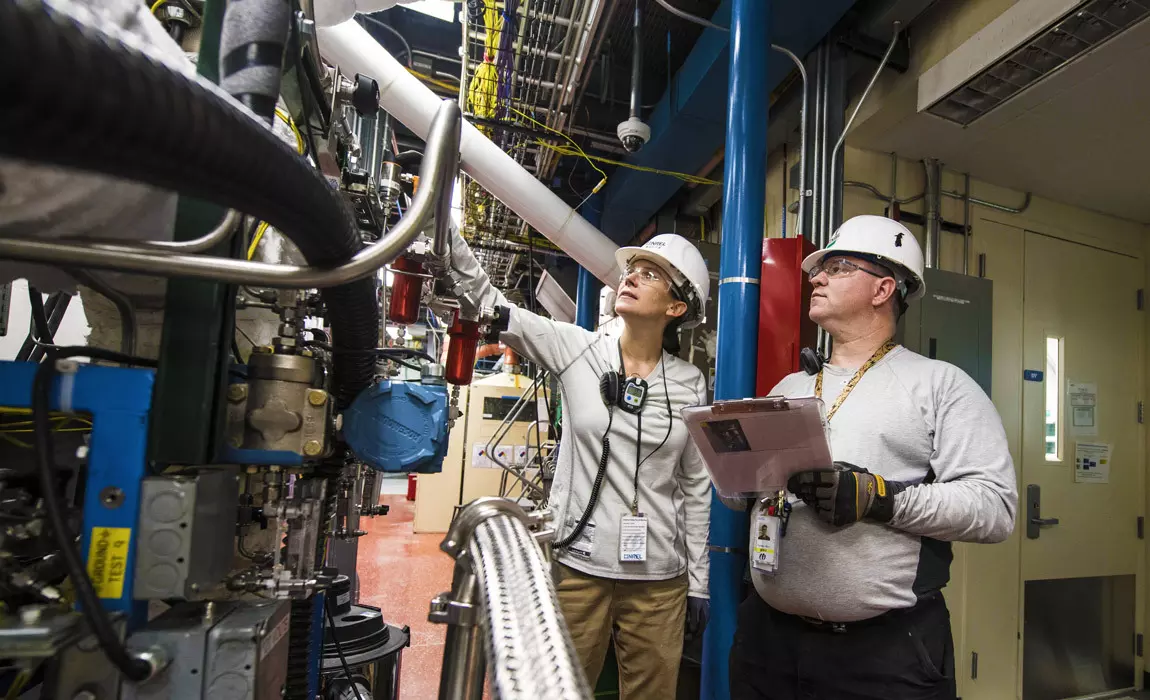As a business owner, finding time for all of your teams is one of the hardest tasks you’ll ever face. The harsh reality is that some groups are more likely to be ignored than others. Manufacturing teams are arguably at more risk than others. After all, the factories and warehouses are out of sight and out of mind.
Now is the perfect time to make a conscious effort to show that manufacturing workers across all disciplines are valued. When you do, they will repay the favor with better results. Here’s how to make it happen.
Hire The Best Workers That You Can
Recruitment is one of the most significant features of running a small business. As such, you must do everything in your power to avoid bad workers. This means checking their character traits as well as their talents. An inferior employee won’t only fail to deliver the results you deserve on a personal level. Worryingly, they will influence their colleagues. Whether they do this by promoting laziness or harming the atmosphere with bullying or negativity doesn’t matter. It will cause major problems, which is why you must stamp it out.
Make Safety A Priority
It’s worth stating the obvious here: operating within a factory or warehouse means you will be surrounded by dangerous machinery and chemicals. As such, preventing accidents should be one of your top priorities. Of course, this isn’t just about having safe materials available to each worker at all times. You also need to ensure they know how to use them properly.
This may mean creating an extensive training schedule with various courses tailored to different groups of employees. It could also involve organizing regular refresher sessions for people who have spent some time off from work or who are new to your organization.
If you run a busy business, you might worry that setting aside funding for safety initiatives is a false economy. However, it could save you time and money in the long run.
Prevent Downtime
Time is money, and you cannot afford to keep wasting it on behalf of your workers. Manufacturing plants and factories have huge demands for reliable power. Ensuring that all power generations, including backup supplies, are in good health is key. You can take some of the pressure off by outsourcing big data to a data center. This will additionally leave you with more space in these workspaces. Having your circuit boards tested on a regular basis can help too. Prevent these issues and your team can focus on working.
Share Responsibilities With Employees So They Have Ownership Of Their Tasks
You might think a team of interchangeable faceless workers is the way to maximize productivity. However, this mindset will only hurt your bottom line. An ideal setup is one where employees have jobs they enjoy and which are meaningful to them. This automatically solves many real-world problems and boosts morale among them. After all, you’ll have created a sense of purpose for each employee.
If you can do that, their levels of motivation will increase dramatically. As such, they will work harder without being told to do so by managers or supervisors. They’ll also feel more appreciated in general because they are given new opportunities with higher degrees of responsibility.
Improve Workflows To Smooth Labor Flow And Avoid Bottlenecks Or Deadlocks
Even the most organized and detail-oriented factories will experience bottlenecks from time to time. These can be a major burden on your workflow. They contribute to unnecessary delays that wreak havoc on delivery schedules and inventory control.
Make sure to foster a team of employees who see the big picture of the operation by ensuring they understand how their tasks relate to the wider business objectives. As well as improving team morale, this allows them to see where changes could be made elsewhere in order to prevent future lapses in productivity.
This may require listing all duties your employees must perform regularly so you can identify potential problems or discontinuities between workers if they occur frequently. An improved system with better flow will also make it easier for staff to switch roles periodically if necessary without causing a major disruption to the greater system.
Invest In Better Equipment
They say a bad workman blames their tools. In reality, even great employees will feel frustrated if inadequate facilities are holding them back. Educate yourself with an understanding of the tig welding process, and you’ll soon see the need for quality tools. Similarly, the right safety items must be in place as fears could be a mental distraction. Where possible, automated tech should be used to create quicker production lines and reduce faults. Human error remains the biggest threat to production.
A good example of this would be uniform procedures that are followed in each step of a job. For instance, long stretches between key checkpoints will make it difficult to find errors without wasting resources. A factory full of shortcuts and half-baked attempts at automation is going to affect your production quality because these things have to work consistently if they’re intended for practical use. Invest in better machinery, hire experts who know what they’re doing, and seek out opportunities to adopt new technologies through mutual encouragement with other companies. This will ensure you have high quality products that also come as quickly as possible while minimizing waste from faulty jobs.
Improved Opportunities For Employee Training
You don’t have to be a genius to see that workers are going to make mistakes sometimes. Even the most experienced engineer will need guidance every so often. This means it pays off to invest in adequate training for your team members.
Employees should not feel anxious about trying new things or being wrong as it encourages innovation and experimentation. Management should always encourage this spirit of optimism by complimenting progress and rewarding success with tangible rewards such as vacations or bonuses.
As well as improving their morale and efficiency, this will lead to higher quality products who come more quickly, and these products also tend to have fewer faults than those made by people who don’t know what they’re doing. As you can appreciate, this is all good news for your business, as you’ll be able to sell more goods with less risk that the customer will be unhappy. This is a win-win situation for both parties involved.
One of the best ways to make this happen is to hire experts who have already been trained and have experience in the field. If necessary, training can take place on company time so no production is lost. You could also offer tuition reimbursement or incentives so your employees are willing and enthused about learning how to do the job properly .
Make Sure The Path To Advancement Is Clearly Defined
Successful employees are always looking for ways to advance their position, and they’re not going to stick around if they feel trapped in a single role. This can create problems with the way your business operates because you can lose a skilled worker without warning or time to make arrangements .
This is why it’s so important for management to clearly outline possible career paths from day one. Employees should be aware of what direction they could head in as they gain experience and understand what costs will go into getting there. For example, you may have positions that require training at another facility entirely, and workers will need to move away from home or invest extra hours in studying and commuting unless appropriate arrangements are made. Offering opportunities for advancement also helps foster the positive attitude issues that make your business more profitable in the first place .
The best way to accomplish this is by making sure your facility is a good environment for employees. This means paying them properly and giving them the respect they deserve as well as having clear expectations of what their performance should be like. It’s also helpful to have informal chats with workers about where they think they could go if they prove themselves worthy.
Communicate Goals And Objectives Clearly
Effective communication is one of the most important skills in business. If you don’t use it to articulate your objectives and goals, teams will struggle to meet them. Fortunately, there are a number of ways you can communicate effectively within production units.
One idea is creating an extensive employee handbook with everything workers need to know regarding policies, safety issues, compliance procedures, benefits and more. This document should also establish clear guidelines for how daily tasks should be performed so that everyone understands their roles from the outset.
Another tactic is holding regular meetings where team leaders bring updates on progress or plans for future campaigns. These sessions could help all employees feel like they have some input or control over what happens in production-based groups as opposed to feeling like cogs in a machine.
A third method is to speak with workers directly. This could involve regular catch-ups or even weekly one-on-one sessions where you analyze progress and decide how best to maximize efficiency within the unit.
In addition, if you regard communication as being fundamental, then making an effort to listen is also important. As such, you should try your best to hear people out rather than interrupting them without giving them time to finish talking. Improving team communication will go a long way toward building productive relationships at work that everyone can benefit from.
Cooperate With Other Departments
When it comes to achieving your goals for 2018 or beyond, don’t underestimate the value of cooperation between different departments. Even if you don’t see yourself as having anything to learn from other teams, there will always be some cross-over in your responsibilities. That means you can work together to maximize the output of both groups and achieve far more than either team could on its own.
As such, find ways to cooperate with sales departments so that customers are satisfied with what they buy or clients are happy with the services they receive. Similarly, seek out opportunities to collaborate with other production units since this could help each produce exclusive products that would otherwise need to be outsourced at extra cost.
There’s also value in cooperating with other departments that you might think are unrelated such as human resources. This will help to identify ways of making employees more engaged and productive at work. If you work together to improve morale among workers, then their job satisfaction will improve which leads to them being more motivated than before so they will be even better at doing their jobs. Greater motivation in teams also means that workers are less likely to slack off or take sick days due to stress so it can help improve overall efficiency by displacing unproductive time with periods when workers add value instead of detracting from it.
Provide Incentives For Workers To Produce Quality Work
Ensuring that the right features are in place to encourage good daily productivity will give you a strong platform. However, you must not forget that your workers are only human. As such, one of the smartest things you can do is play to their mindset and natural ambition. Offering work perks, bonuses, and other incentives can inspire them to work better and harder. Cultivating a positive atmosphere across the company can have a positive influence too. Ultimately, though, workers are there for themselves. Use this to your advantage.

